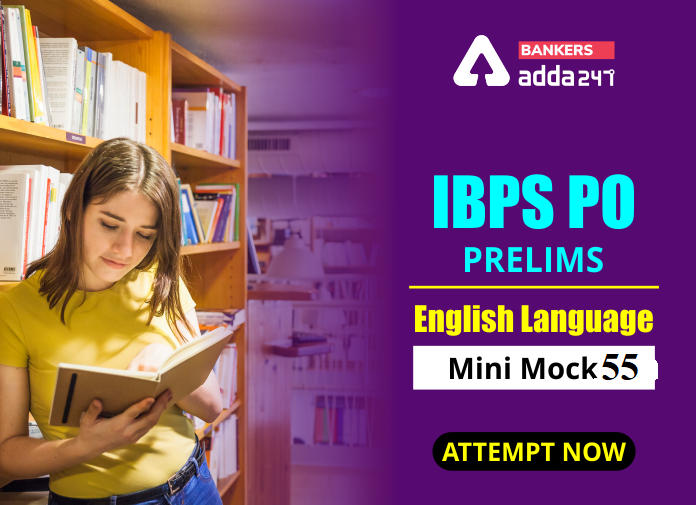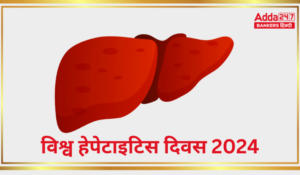Directions (1-10): In the following
passage, some of the words have been left out, each of which is indicated by a
number. Find the suitable word from the options given against each number and
fill up the blanks with appropriate words to make the paragraph meaningfully
complete.
Q1. (a)
treatise
(b) volume
(c) remark
(d) evidence
(e) theme
Q2. (a) concept
(b) tradition
(c) instruction
(d) solemnity
(e) information
Q3. (a) spirit
(b) function
(c) process
(d) vivacity
(e) action
Q4. (a) popularly
(b) inquisitive
(c) average
(d) exquisite
(e) preferential
Q5. (a)
concluded
(b) effectuated
(c) finalized
(d) rendered
(e) realized
released
(b) revealing
(c) recognized
(d) presented
(e) exhibiting
(b) task
(c) propensity
(d) pursuit
(e) obligation
Q8. (a)
impregnated
(b) pervaded
(c) agonized
(d) pestered
(e) manifested
Q9. (a) form
(b) composition
(c) concord
(d) architecture
(e) beauty
Q10. (a)
acceptably
(b) profusely
(c) appropriating
(d) properly
(e) charitably
Directions (11-15): Read
each sentence to find out whether there is any grammatical or idiomatic error
in it. The error, if any, will be in one part of the sentence. The number of
that part is the answer. If there is ‘No error’, the answer is (e). (Ignore
errors of punctuation, if any.)
Q11. The issues
were complex (A)/ and especially the members (B)/ of the committee (C)/ have
made them obscure. (D)/ No error. (E)
(a) A
(b) B
(c) C
(d) D
(e) E
Q12. I thought
that he (A)/ would come and give (B)/ me the latest information (C)/ about the
patient. (D)/ No error. (E)
(a) A
(b) B
(c) C
(d) D
(e) E
Q13. Inquisitive
people (A)/ are usually the ones (B)/ who make (C)/ the most exciting
discoveries (D)/ No error (E)
(a) A
(b) B
(c) C
(d) D
(e) E
Q14. Mohan said
that he was going to (A)/ the library and wanted to (B)/ know that I could (C)/
accompany him. (D)/ No error. (E)
(a) A
(b) B
(c) C
(d) D
(e) E
Q15. All of (A)/
us surprised (B)/ to see an old man of (C)/ sixty taking part in the Marathon
held last month. (D)/ No error. (E)
(a) A
(b) B
(c) C
(d) D
(e) E
SOLUTIONS
S1. Ans. (a)
Sol. Treatise
means a written work dealing formally and systematically with a subject. Hence
the word fits into the sentence correctly.
S2. Ans. (b)
Sol.
“tradition” is the correct word that fits into the sentence as it means a
long-established custom or belief that has been passed on from one generation
to another. Hence (b) is the correct option.
Solemnity means
the formal and dignified.
S3. Ans. (c)
Sol. “process”
is the most appropriate word that fits into the sentence correctly. Hence (c)
is the correct option.
Vivacity means
the quality of being attractively lively and animated.
S4. Ans. (d)
Sol. Exquisite
means extremely beautiful and delicate. Hence it forms the most appropriate
word to fill the gap in context of adding meaning to the sentence.
S5. Ans. (e)
Sol. “soon
realized” is the correct phrase in context of its usage in the sentence. Hence
(e) is the correct option.
Effectuated
means put into force or operation.
S6. Ans. (d)
Sol.
“presented” is the correct word that adds meaning to the sentence. Other words
are irrelevant in context of their grammar structure or usage in the sentence.
Hence (d) is the correct option.
S7. Ans. (a)
Sol. “concern”
is the correct word in context of its usage in the sentence as it means a
matter of interest or importance to someone. Hence (a) is the correct option.
Propensity
means an inclination or natural tendency to behave in a particular way.
S8. Ans. (b)
Sol. Pervaded
means spread through and be perceived in every part of. Hence the word fits
into the sentence correctly.
Impregnated
means saturate.
Pester means
trouble or annoy (someone) with frequent or persistent requests or
interruptions. Agonized means manifesting, suffering, or characterized by great
physical or mental pain.
S9. Ans. (d)
Sol. “breathtaking
architecture” makes the most appropriate phrase in context of its meaning to
the sentence. Hence (d) is the correct option.
Concord means
agreement.
S10. Ans. (b)
Sol. Profusely
means to a great degree; in large amounts. Hence (b) is the correct word to
fill the gap.
S11. Ans. (d)
Sol. Use ‘had’
in place of ‘have’ as from “The issues were complex”, we come to know that the
incident occurred in the past.
S12. Ans. (e)
Sol. The
sentence is grammatically correct.
S13. Ans. (b)
Sol. The
sentence is grammatically correct.
S14. Ans. (c)
Sol. Use ‘if’
or ‘whether’ in place of ‘that’ because ‘if’ or ‘whether’ is used in indirect
narration.
S15. Ans. (b)
Sol. Use ‘were’
before ‘surprised’ because the sentence is in passive voice.


 IBPS Clerk 2024 - IBPS क्लर्�...
IBPS Clerk 2024 - IBPS क्लर्�...
 RBI Grade B 2024 Notification Out: RBI �...
RBI Grade B 2024 Notification Out: RBI �...
 World Hepatitis Day 2024 - विश्�...
World Hepatitis Day 2024 - विश्�...

